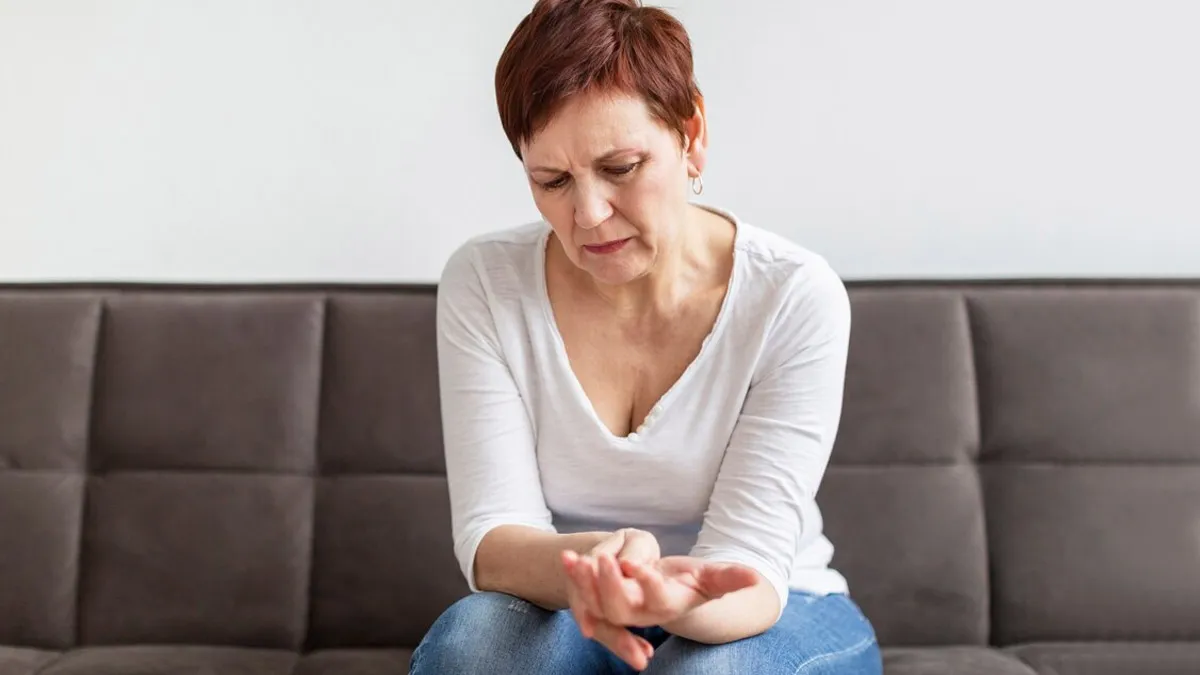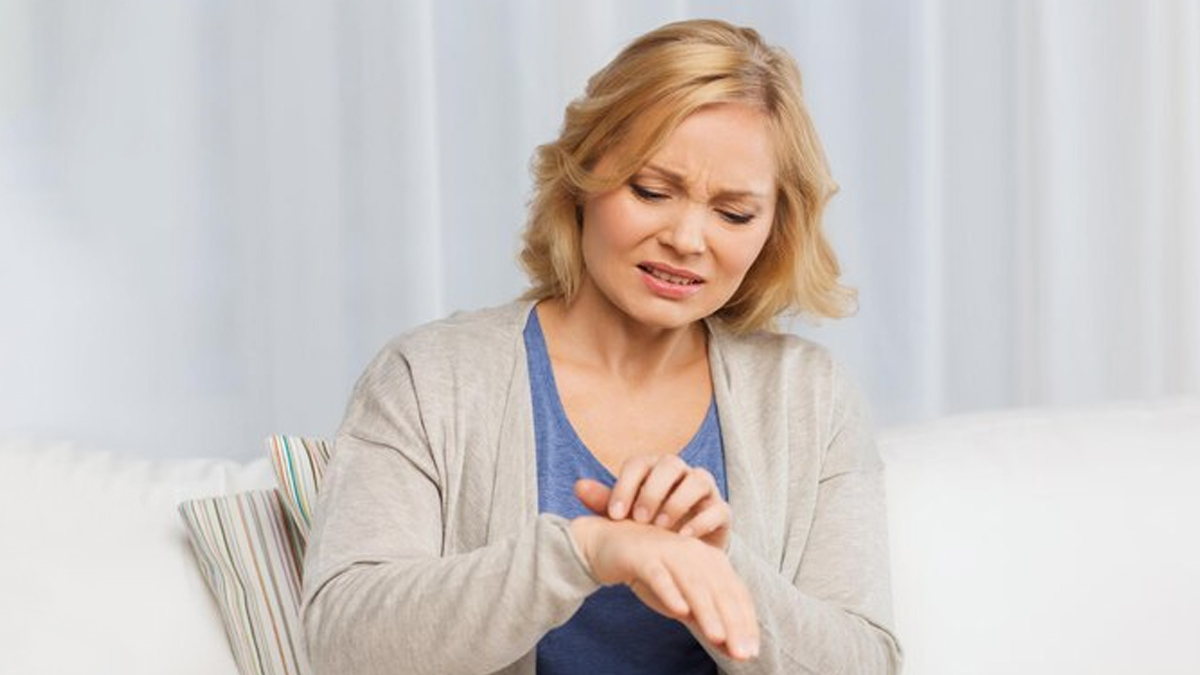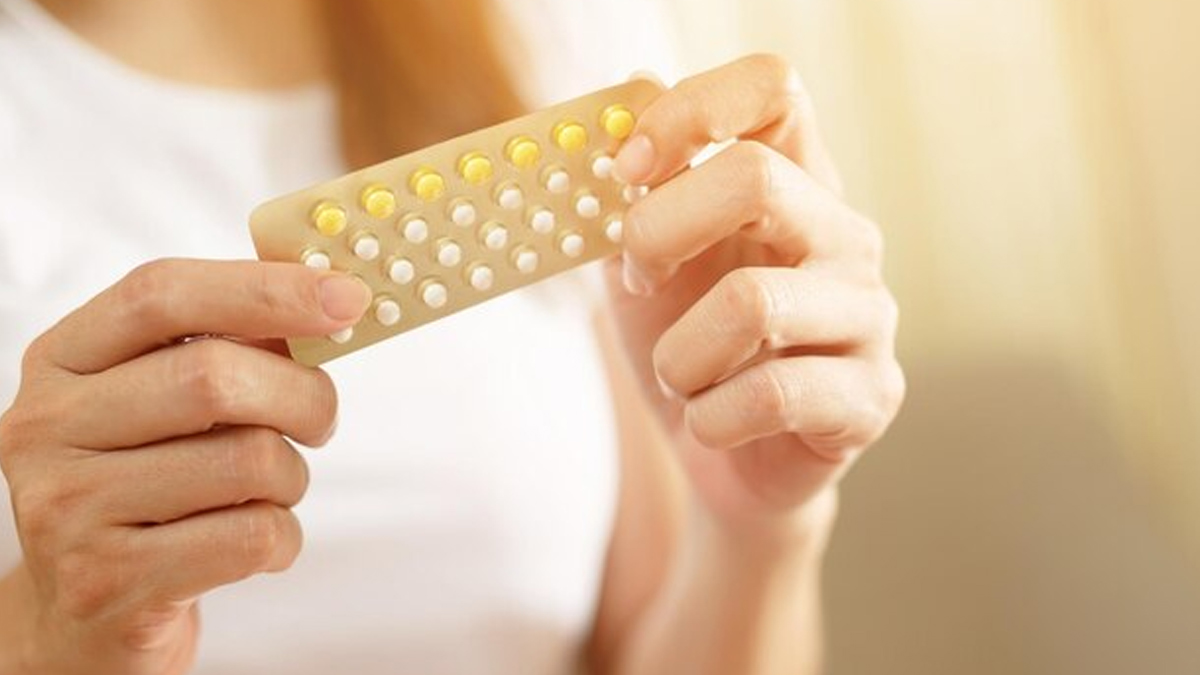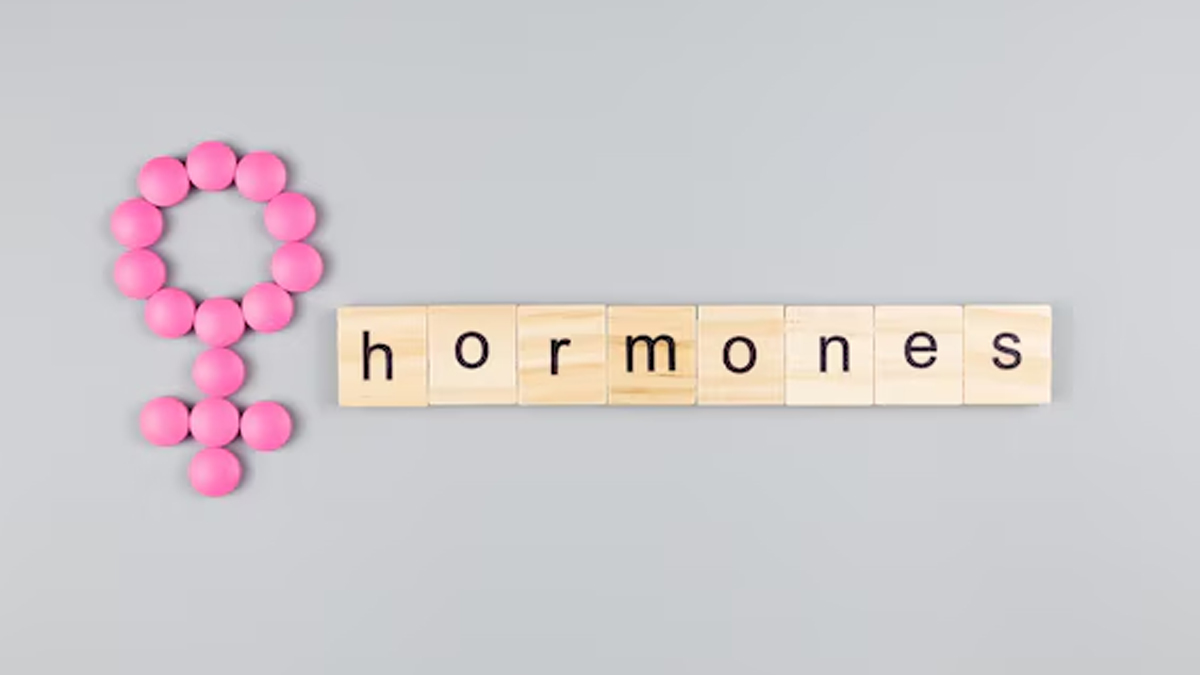
Oestrogen is a hormone that helps regulate the female reproductive system. Both males and females produce this hormone; however, it plays a more significant role for women's health. From driving the development of female characteristics during puberty, such as breasts and wider hips, it also initiates the menstrual cycle. In addition, oestrogen also helps maintain bone strength, regulate mood, and keep check on heart health.
Table of Content:-
Interestingly, oestrogen levels also influence your skin health, and low levels have been associated with dry, itchy skin, particularly in menopausal women. Speaking with the OnlyMyHealth team, Dr Nancy Nagpal, Gyaneacologist, Salubritas Medical Centre, South Delhi, sheds light on the link.
Also Read: Role Of Hormones In Heart Health: Expert Explains Why Women's Cardiovascular Risk Increases With Age
What Happens To Oestrogen Levels During Menopause?

Menopause can come in three stages:
Perimenopause: The transition period leading up to menopause, marked by irregular periods and potential symptoms like hot flashes.
Menopause: The point where menstruation completely stops, usually defined as 12 months without a period.
Postmenopause: The time after menopause, when menstrual periods are no longer present.
During menopause, oestrogen levels drop significantly, as the ovaries do not produce sufficient hormones, leading to symptoms, such as hot flashes, night sweats, and vaginal dryness.
According to the Office on Women's Health, you have reached menopause if you have not had your periods for 12 months in a row.
How Low Oestrogen Levels Affect Skin Health?

Dr Nagpal says, "Low oestrogen levels, particularly during menopause, can significantly affect the skin, leading to dryness and itchiness. This occurs due to a decrease in the production of natural oils and collagen, which results in thinner and drier skin, ultimately causing irritation and discomfort."
According to a study published in the International Journal of Women's Dermatology, an oestrogen deficiency can also contribute to skin ageing, with studies highlighting an increase in skin damage in postmenopausal women.
Research has explored alternatives like topical oestrogens and soy-derived isoflavones, which mimic oestrogen’s effects and may improve skin hydration, elasticity, and overall appearance.
What Areas In The Body Are More Prone To Oestrogen-Related Skin Dryness And Itching?
“The vaginal area is the most commonly affected region, with symptoms ranging from dryness, irritation, and itching to discomfort during sexual intercourse,” shares Dr Nagpal, adding that other parts of the body may also experience dry and itchy skin due to decreased oestrogen levels.
Also Read: Oestrogen Detoxification: Expert Shares A Comprehensive Guide to Hormone Balance and Wellness
How To Balance Oestrogen Levels And Reduce Skin Itchiness?

According to the doctor, several treatments are available to manage low oestrogen levels and menopausal itchiness.
She recommends selective oestrogen pills, lubricants, and moisturisers to help alleviate symptoms. For dry skin, oils and hydrating creams can be applied. However, all treatments should be used under the supervision of a doctor or gynaecologist to ensure safety and effectiveness, she notes.
Additionally, certain dietary changes can help manage symptoms of low oestrogen. Foods rich in phytoestrogens, such as tofu, legumes, flaxseeds, and sesame seeds, can be beneficial. Including berries, nuts, broccoli, and other vegetables in the diet is recommended. A high-protein diet, along with adequate intake of calcium, fibre, and vitamin D, can also support overall health. Processed foods, sugar, and excessive carbohydrates should be avoided.
Dr Nagpal concludes by emphasising the importance of seeking medical advice if menopausal women experience persistent vaginal dryness, discomfort during sexual activity, or significant skin itchiness.
Other symptoms of low oestrogen include mood swings, palpitations, changes in skin and hair, breast tenderness, and sleep disturbances. It is also important to note that a decline in bone mass density is also a common concern during menopause, requiring medical attention and appropriate management.
Also watch this video
How we keep this article up to date:
We work with experts and keep a close eye on the latest in health and wellness. Whenever there is a new research or helpful information, we update our articles with accurate and useful advice.
Current Version